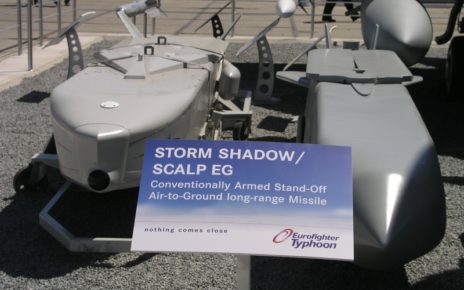Aaron Willschick looks at the puzzling issue of why pirate attacks have risen on Africa’s west coast and drastically fallen on the east coast in the Gulf of Aden.

After nearly three weeks in captivity, pirates released five Russian and Polish crew members last week taken from a cargo ship hijacked off the coast of Nigeria last month. The hostages were taken on April 25th when the citadel in their ship was attacked by fourteen heavily armed pirates. Despite difficult conditions, the crew members were returned to their countries in good health. This hijacking is the latest in a string of attacks that have been occurring and escalating off Nigeria in the Gulf of Guinea. Piracy has been on the rise in the area, an important exporting region for oil, cocoa and metals and insecurity is driving up costs. Over the last year, piracy in the Gulf of Guinea has escalated from low-level armed robberies to hijackings and cargo thefts and kidnappings. Pirates have been more willing to use violence in their robberies, at times targeting the crew for ransom. In 2012 there were 51 attacks in the Gulf of Guinea, an increase of 42 percent from the previous year.
While pirate attacks have risen substantially on the west coast of Africa, they have plummeted in the Gulf of Aden on the east coast near Somalia. Nearly fifty ships were taken by pirates in 2010 in the Gulf of Aden and Somali Basin along with nearly 200 unsuccessful attempts. In 2012, just seven ships were hijacked along with 36 failed attacks. It is clear from these statistics that the prevalence of maritime piracy is moving in very different directions between the east and west coasts of Africa. On the surface, there does not seem to be any crucial factor that would make piracy more dominant in the Gulf of Guinea than it is in the Gulf of Aden. But a closer examination uncovers some important differences.
As my previous article on maritime piracy discusses, the combined efforts of international naval forces and improved security on ships has had a lot to do with the reduction in pirate hijackings off the Somali coast. Much of this success can also be attributed to the more vigilant prosecution of pirates with authorities handing down harsher punishments to perpetrators. Many of the pirates that have been jailed have been transferred to Somali prisons where conditions are extremely grim. Many feel that these actions have acted as a serious deterrent to would be pirates which along with the large international presence, has explained the decline in Somali piracy.
On the other hand, international navies are not engaged in counter-piracy missions off Nigeria in the Gulf of Guinea. Allied leaders have been weighing whether increased enforcement efforts that worked against pirates off the Somali coast may be effective in the waters off Nigeria. There has been growing coordination between the jihadist militant organization Boko Haram and al-Qaida in the Islamic Maghreb which was linked to the attack on the U.S. diplomatic mission in Benghazi last September that killed the U.S. ambassador. It has long been difficult to track whether there are terrorist ties to piracy in the waters off Africa. No final decisions have been made on how counter-piracy operations could be augmented in that region, a decision likely hampered by budget restrictions.
To further complicate matters, many experts feel that employing a massive naval presence similar to the one off the Horn of Africa is unlikely to solve the problems on Africa’s west coast. The reason is that many of the countries along Africa’s western coast are plagued by social conflict and political instability. Observers see the primary difference being that Somalia is a failed state where an international presence is necessary while the countries in the Gulf of Guinea are sovereign states with functioning governments. Despite these reservations, there is a strong incentive for intervention. The countries along the Gulf of Guinea are rich in oil, producing roughly three million barrels of crude oil each day. Europe buys about 40 percent of its oil from this region while the U.S. purchases about 30 percent.
Perhaps the best remedy for piracy in the Gulf of Guinea lies, as some experts suggest, in not intervening at all. There have been suggestions that the most effective strategy would be for the international community to support these countries from a distance in building their own maritime security strategy to fight piracy. These states must improve their regional cooperation while at the same time; undertake a lot of state and institution building. Unemployment, high costs of living and widespread corruption make piracy a lucrative business for individuals. There are civil servants, border police and soldiers who are all involved in pirate activities. Economic reforms are needed to decrease unemployment and living conditions must be improved.
There are signs that things are beginning to move in the right direction. Several pirate gangs were recently taken into custody in Nigeria and in Togo the government has been actively trying to curb piracy. These are encouraging signs, but improving the living conditions in West Africa is a long-term objective far off in the future. If the international community is unwilling to increase its naval presence then the short-term prospects for curbing piracy are tenuous at best. If Gulf of Guinea states are going to curtail piracy, it is going to require time and a collective effort that includes internal reforms and a willing international presence ready to provide the resources necessary to help resolve an ongoing problem.




